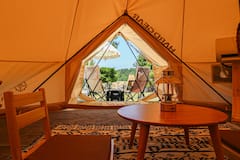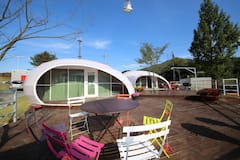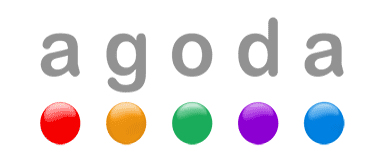Korea is a country divided into two distinct states the North and South Korea. It borders China and Russia to the northwest and northeast respectively. Korea is also known for its fast internet and is a haven for tech junkies. In Asia, South Korea comes third in terms of the largest economies that is after China and Japan and holds the seventh place in the world as the largest exporter mostly exporting electronics. South Korea is also home to Jeju, which is one of the most popular holiday destinations with beautiful volcanic landscapes. It is also a perfect place to go hiking and the scenic beaches are just the best place to take that private time off. Check out these basic phrases every traveler should learn while in Korea.
1. Simple conversational greetings
The first thing you want to do when you arrive in Korea is to greet the person you meet. You can start by saying “An-nyeong-ha-se-yo” which means “Hello”. This will always put a smile on any Korean you meet and greet.
After a short conversation and you want to respectfully leave, all you have to say is “Ahn-nyung-hee geh-seh-yo” which means “Goodbye”, this word can also be used if the person you are talking to is leaving.
When you meet a person at the hotel and you want to tell them “It is nice to meet you”, all you need to say is “Ban-gap-sum-ni-da” or “Uh-dduh-keh ji-neh-seh-yo”.
2. Ordering food
When in a restaurant and you want to ask for the menu so that you can order food you can start by saying “Ju-seh-yo meh-nyu ju-seh-yo”, where “Ju-seh-yo” means “Please give me”.
When you want to order your food you start by saying “meh-nyu ju-seh-yo” which means “Menu please”. “Meh-nyu ju-seh-yo” can be used on its own as a means of asking for the menu.
If you have a specific allergy and you would like to inform the waiter what you say to them is “juh ahl-luh-ji eet-suh-yo”, this will prompt the waiter to offer you an alternative choice of food available.
When you want to request for your bill you say “keh-san-suh ju-seh-yo”, and if you want your meal wrapped for you to carry home, what you say is “ssa ju-seh-yo” which also means “It’s to go”.
3. Asking for directions
Obviously, once you arrive you are in Korea, you would love to explore the surroundings and to move around you need a taxi. The first thing is to confirm if the driver or any person you want to talk to can speak and understand English. For this, all you need to say is “yung-uh hal su-eet-suh-yo”.
When the person is speaking so fast that you can barely understand what they are saying, you say “chun-chun-hee mal-sseum-heh ju-seh-yo”.
If you need to ask someone to speak slowly or when asking for directions you start by saying “uh-di-eehn-ji ah-seh-yo”. And if by any chance you get lost, just approach any officer and tell them “gil-eul ilh-uht-suh-yo”.
You might be interested in these Airbnbs!
4. Shopping/bargaining
A language barrier is always an issue when you are in a foreign country and when you want to buy a souvenir, these are the terms you need to know. When asking the price of what you want to buy u say - “ol-ma-ye-yo”.
When asking for a discount of the item(s) you are buying you say “Kka-kka-ju-se-yo”. The attendant will respond if a discount is offered or not.
When looking for something specific at a shop you start by saying “eess-uh-yo” which means “Do you have?”, then you can mention what exactly you are looking for.
When you want to confirm if the shop accepts credit cards you say “kah-deu bat-euh-seh-yo”.
In case you need to exchange an item bought, you say “gyo-hwan-heh ju-seh-yo”.
5. Medical emergencies
You never know when you can be in an emergency situation. It’s worse if you are in a foreign country and you need help. These phrases might just end up saving your life. The first phrase to learn is “byung-uon” which means “hospital”.
When you have an emergency and you need to call for help, all you have to do is say is “doh-oah-ju-seh-yo” which means “help” in Korean. You can shout “doh-oah-ju-seh-yo", which means “Give me help” and this can be used if you have a medical emergency or when in danger.
“Gin-geup-sahng-hwang-ee-eh-yo” means "it’s an emergency”. This phrase will make people rush to your aid.
If you are attacked or feel threatened and you need to call the police you say “kyung-chal-eul bu-reu-seh-yo” which means “Call the police”.
When you need to see the doctor for a medical emergency you say “uie-sah-gah pil-yo-he-yo”.
Must-know phrases when in Korea

In each country you visit either for business or pleasure, you have to know some phrases that can save your life, help you hold a simple conversation or just ask for directions to your hotel.
History
Get Trip101 in your inbox
Unsubscribe in one click. See our Privacy Policy for more information on how we use your data

























Create an account to